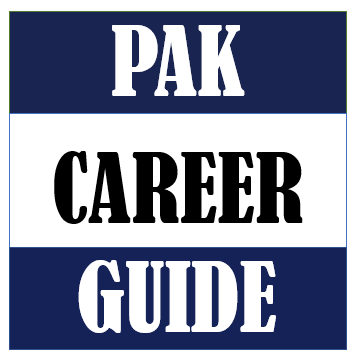To achieve a
good academic and professional future, Pakistani students must carefully
prepare and make decisions before beginning their educational path. This article
discusses numerous possibilities, obstacles, and opportunities throughout the
educational journey for Pakistani students, from elementary school to higher
education, and acts as a thorough guide to aid them.
Part 1:
Primary and Secondary Education
1. Primary
Education
The cornerstone
of a student's academic path is their primary education. Both public and
private primary schools are available in Pakistan. When choosing a school for
their child, parents must take into account elements like the school's
reputation, the caliber of the instructors, and the amenities.
2. Secondary
Education (Matriculation/O-Level)
Students move on
to secondary school after completing their elementary education, which
culminates in the O-Level exams for those using the Cambridge system or the
Matriculation exams in Pakistan. The O-Level system or the national curriculum
depends on personal choices and future job goals.
Part 2:
Higher Secondary Education
1.
Intermediate (F.Sc/FA)
Students often
pursue intermediate education, also known as F.Sc (pre-engineering,
pre-medical) or FA (arts), after finishing Matriculation or O-Levels. Students
go through this phase to get ready for admission to bachelor's degree
programmes.
2. A-Level
(Advanced Level)
Some students
choose the advanced A-Level curriculum, which gives them more specialized
knowledge and gets them ready for higher education either overseas or in
Pakistan.
Part 3:
Bachelor's Degree Programs
1. Choosing a
Field of Study
Making a
selection on a bachelor's degree subject of study is crucial. When making this
decision, students should take into account their interests, abilities, career
aspirations, and future employment opportunities.
2. Admissions
Process
Academic
standing, entrance exams, and interviews are frequently used to determine
admission to bachelor's degree programmes. Students must investigate the dates
and entrance standards for various institutions and schools.
Part 4:
Master's and Professional Degrees
1. Master's
Degrees
Students can
pursue master's degrees in a variety of subjects after earning a bachelor's
degree. A master's degree can improve professional opportunities and enable
specialization in a certain field.
2.
Professional Degrees
Professional
degrees are necessary for careers in industries including business, law,
engineering, and medicine. These programmes frequently demand challenging
coursework and specialized entrance exams.
Part 5: Study
Abroad Options
1. Advantages
of International Study
Exposure to
various cultures, educational systems, and viewpoints is one benefit of
studying abroad. It can improve employment, personal development, and access to
cutting-edge research possibilities.
2. The
Software Process
Research,
standardized exams (such the TOEFL, IELTS, or GRE), writing a compelling application
essay, and obtaining letters of reference are all required when applying to
institutions overseas.
Part 6:
Challenges and Opportunities
1. Limited
resources
Making decisions
about schooling is often influenced by financial factors. Financial constraints
may be lessened with the aid of scholarships, grants, and part-time employment
options.
2. Technical
Innovations
The digital era
has changed how people learn. Additional resources are available to augment
learning experiences through online learning platforms, webinars, and e-books.
3. Cultural
and Gender Aspects
Pakistani
students may encounter obstacles linked to gender or culture when pursuing
their education. To overcome these challenges, societal support and lobbying
for equitable opportunities are crucial.
Conclusion
In Pakistan,
navigating the educational system takes careful preparation, commitment, and
knowledge of the various possibilities. Pakistani students have a wide range of
options that may define their academic and professional paths, from early
childhood education to higher education and beyond. Pakistani students may
create the conditions for a prosperous and satisfying future by making
thoughtful decisions and seizing growth chances.





